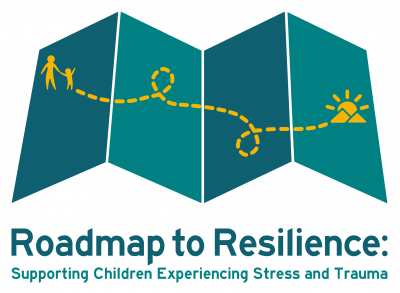 The Center’s goal from 2016 to 2027 is to enhance the ability of more than 80,000 peer and professional counselors to treat more than 200,000 children experiencing developmental trauma disorders and their caregivers.
The Center’s goal from 2016 to 2027 is to enhance the ability of more than 80,000 peer and professional counselors to treat more than 200,000 children experiencing developmental trauma disorders and their caregivers.
A Treatment and Services Adaptation Center in the National Child Traumatic Stress Network
The University of Connecticut Center for Treatment of Developmental Trauma Disorders (CTDTD) brings together developers and disseminators of leading evidence-based child developmental trauma treatments to support providers nationally to achieve competence in the assessment and treatment of children and youth who have experienced developmental traumas such as maltreatment, family or community violence, interpersonal or relational victimization, and separation from or loss of primary caregivers.
Submit a Manuscript to the Journal of Trauma & Dissociation: a Special Issue on new perspectives in trauma and dissociation informed practice
The Journal of Trauma & Dissociation(Julian Ford, CTDTD Director, Editor), is dedicated to publishing peer-reviewed scientific literature on dissociation and trauma, and seeks manuscripts on theory, basic science research, clinical treatment and research related to interpersonal trauma and/or dissociation in children and adults. The Journal welcomes contributions from a variety of different approaches including anthropological, cross-cultural, epidemiological, neurobiological, psychological, psychometric, psychotherapeutic, and social viewpoints. View a guide to submitting manuscripts for peer review.
What We Contribute
CTDTD brings together youth and young adults, family members, community leaders, non-profit health and social services organizations, and local and national experts in trauma-informed behavioral health to produce and provide educational resources and curricula and training designed to raise awareness and enhance services for children and families dealing with trauma.
Webinars and Films
Our webinar series, made with the National Child Traumatic Stress Network, guides clinicians in recognizing and addressing crucial moments in therapy with traumatized children and families. Featuring real therapists, it showcases handling crises to facilitate healing from complex trauma.
Trauma Avengers
The teen characters and their filmed “Digital Diaries” are created by therapists and a creative team, drawn from actual therapy cases. The films are intended for adolescent and teen viewers, preferably under the guidance of a therapist.
Roadmap to Resilience
This collection of podcast episodes, short videos, and other digital resources are here to give you tools and strategies to help children and families overcome adversity and move forward.
Partnering with Youth and Families
Through our various partnerships with organizations, we collaborate with a variety of groups to create training tools to best support areas of interest and need.
Recognition and Awards
We’re proud to have recieved recognition for our work. See full details.



Roadmap to Resilience
 Roadmap to Resilience is a collaboration between Pandemic Parenting and the University of Connecticut School of Medicine Center for the Treatment of Developmental Trauma Disorders, with special thanks to the Inter-Organizational Child Trauma Task Force.
Roadmap to Resilience is a collaboration between Pandemic Parenting and the University of Connecticut School of Medicine Center for the Treatment of Developmental Trauma Disorders, with special thanks to the Inter-Organizational Child Trauma Task Force.
As the COVID-19 pandemic spread and recognition grew of the traumatic impact of racism on under-served and marginalized populations, we quickly realized that the stressors and traumas facing children and families all across the globe would not be short-term experiences.
Julian Ford led the formation of a task force of child trauma experts, including Dr. Amanda Zelechoski, with backgrounds in clinical psychology, pediatrics, psychiatry, nursing, social work, child welfare, education, research, and law. Together they considered, “How can we use our expertise to help children and families cope with the direct stress and trauma of the pandemic and the other traumas exacerbated by stay-at-home orders?”
After being a guest on The Pandemic Parenting Podcast with Dr. Zelechoski discussing Trauma-Informed Parenting, Dr. Ford suggested the task force take a similar approach. Create accessible, relevant, and timely digital content for behavioral health providers, social workers, teachers, parents, medical and nursing professionals, and all who care for kids that teaches and advocates for a trauma-informed approach to supporting children.
The task force members volunteered their time to be interviewed by Dr. Zelechoski and Dr. Ford resulting in 16 podcast episodes and dozens of short videos that walk listeners through what it means to provide trauma-informed support to children in their schools, homes, doctor’s offices, extracurriculars, communities, and beyond.
